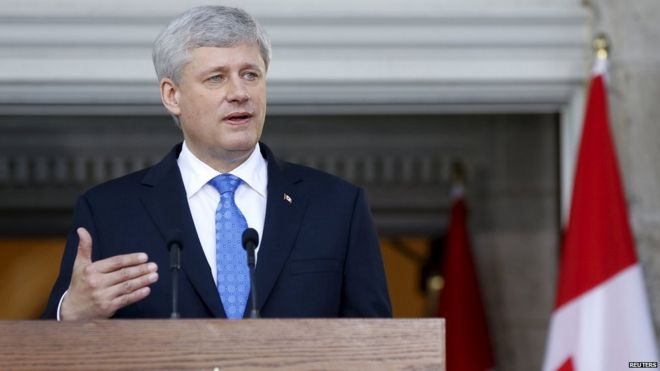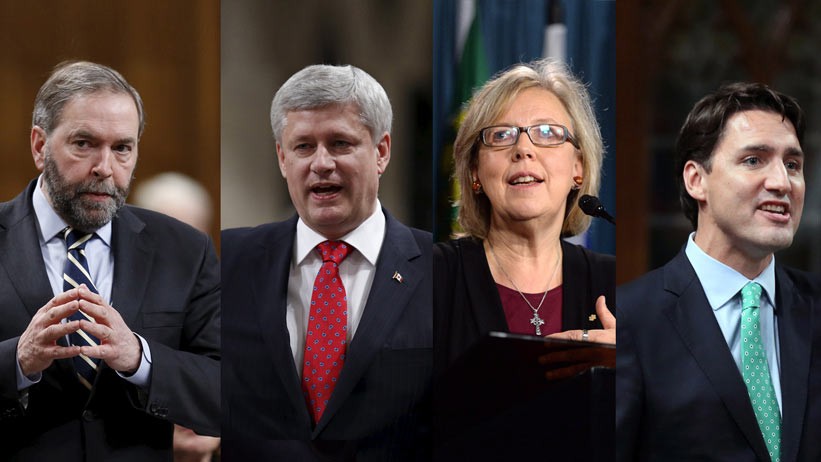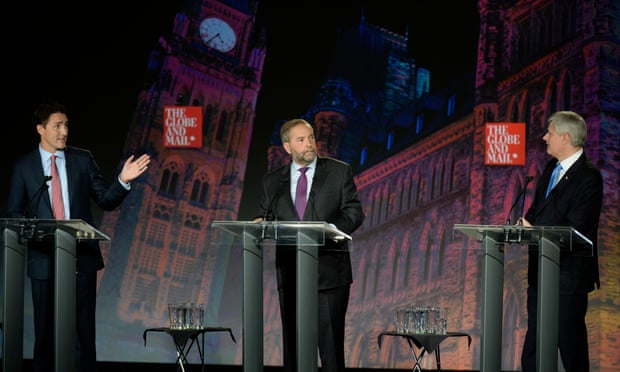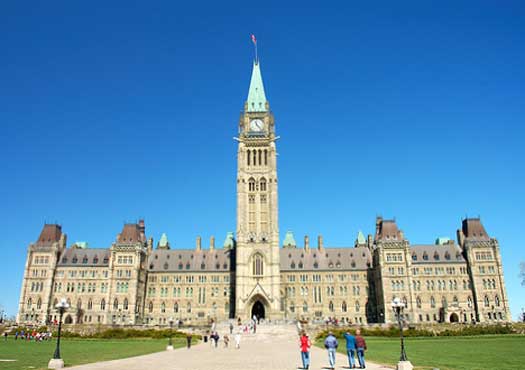Stephen Harper just couldn't get any luck. A week after the debate the Duffy trial came up again. Harper's former Chief of Staff Nigel Wright testified in court on the trial of Senator Mike Duffy, telling the court he informed Harper that Duffy agreed to repay his impugned expense claims, but he did not disclose there was a plan afoot for the party to foot the bill. With the Duffy courtroom drama playing out in Ottawa, Harper faced hard questions about his current chief of staff, Ray Novak, after it emerged he was included on the email chain about Wright's plan to repay the senator's expenses. The scandal opened Harper up to charges that he was corrupt, or at the very least tarred with corruption and sleaze. Harper's record, as good or bad as it may have been in other areas, did not come off as 'clean' to most Canadians. Mulcair attacked Harper, saying "Mr Harper has not been truthful with Canadians. That has become abundantly clear from the emails that have been released and Canadians deserve better."
On August 17 a poll by Nanos Research was released. The Bloc Quebecois got 3%, the Greens got 6%, the Liberals got 25%, the Conservatives were at 29% and the NDP at 36%. The NDP had a lead in most polls and the Conservatives seemed to be falling. An NDP victory was so close to reality, only a few more weeks were left. The Liberals weren't about to let their future as a party slip away, and Harper wasn't going to let his conservatism go lightly. On August 23, Trudeau announced a new campaign promise. He would run deficits of up to $10 billion until 2019, and invest in Canadian infrastructure. Mulcair wasn't going to take such a risky position, unlike Trudeau he wasn't desperate, he had a lead he couldn't afford to recklessly throw away. Days later Mulcair declared “We’re of course going to finish the fiscal year on Mr. Harper’s watch – 2015-16 is his budget, but our first budget will be a balanced budget,” Harper too, opposed Trudeau's plan, saying " I guess it turns out the budget doesn'the balance itself after all, but he'll run, he says, a modest deficit-a tiny deficit, so small you can hardly see the deficit-that's what he said." Perhaps in hindsight it wasn't such a smart move to mock and deride the guy who was the only hope of splitting the opposition vote and getting you elected.
On September 1 the economic results officialy came out. Canada had negative growth. It was now in a recession. While a minor one, it came at a pretty bad time for Harper. Only two weeks before the election, the centerpiece of his campaign, his economic record, had a big hole in it. On September 2, the economic debate was held. "The other parties are trying to tell us they will deal with the challenges of our economy, of our labour market, of international markets, by raising taxes and running deficits to finance vastly increased amounts of spending," Harper said. Mulcair attacked Harper, saying “Mr Harper put all his eggs into one basket and then he dropped the basket,” Mulcair said. Trudeau attacked Mulcair's plan, saying "Mr Mulcair wants to follow through with a policy of austerity I want to-" "No I don't' Mulcair interjected. 'You said it, you said it Mr Mulcair" trudeau replied "No, I want a responsible economic policy, I don't want to take irrational risks with our economy, Mr Trudeau" 'I believe that investing in our economy, investing in our infrastructure, investing in our future, that is not irrational and irresponsible, not doing that is." "Your plan is not the right plan, Mr Trudeau, I think a responsible government, left or right, will get our finances in order, manage our economy in a fair and responsible way and not jeopardise our children's future." That exchange was considered a tie between Mulcair and Trudeau.
On September 7 the French-language debate was held. Soon after the economic debate the controversy of Syrian refugees engulfed the election. On 2 September, 2015, the image of 3-year old Alan kurdi, a Syrian refugee child, lying lifeless on a beach circulated the globe. It came out that Kurdi's family had applied for refugee status in Canada, but been rejected. Harper claimed the solution was to militarily defeat ISIS in Syria and Iraq to stop the flow of refugees. Mulcair disagreed, calling for a withdrawal from the fight against ISIS, and saying "no amount of military action would have saved that child on that beach" Harper played on the refugee issue to allege Mulcair and the NDP were soft on terrorism and could let terrorists slip into Canada.
In the final days Harper turned full bore of his attacks on the NDP, finaly realising they, not the Liberals, were the threat. Conservatives attacked Mulcair as a career politician, which some claimed was like the kettle calling the pot black. The refugee/terrorism issue took center stage, Mulcair called Harper "heartless" and Harper called Mulcair "naive, soft on terrorism". The media finally began to realize it was either Mulcair or Harper, and Trudeau began to fade into the background. The polls were close in the final days, as the NDP lost part of its lead and the Liberals made a slight surge. The idea of deficit spending seemed to be attracting valuable voters to the Liberals and could endanger the NDP's chances. Harper got good news on the final day when a surplus was announced. It seemed clear a minority government would be the result, but who won the minority government was the question. It was up in the air, but the NDP seemed to have a slight edge. The final poll on September 13, by Nanos Research, showed NDP 32.1%, Conservative 31.0% and Liberals 28.7%.











